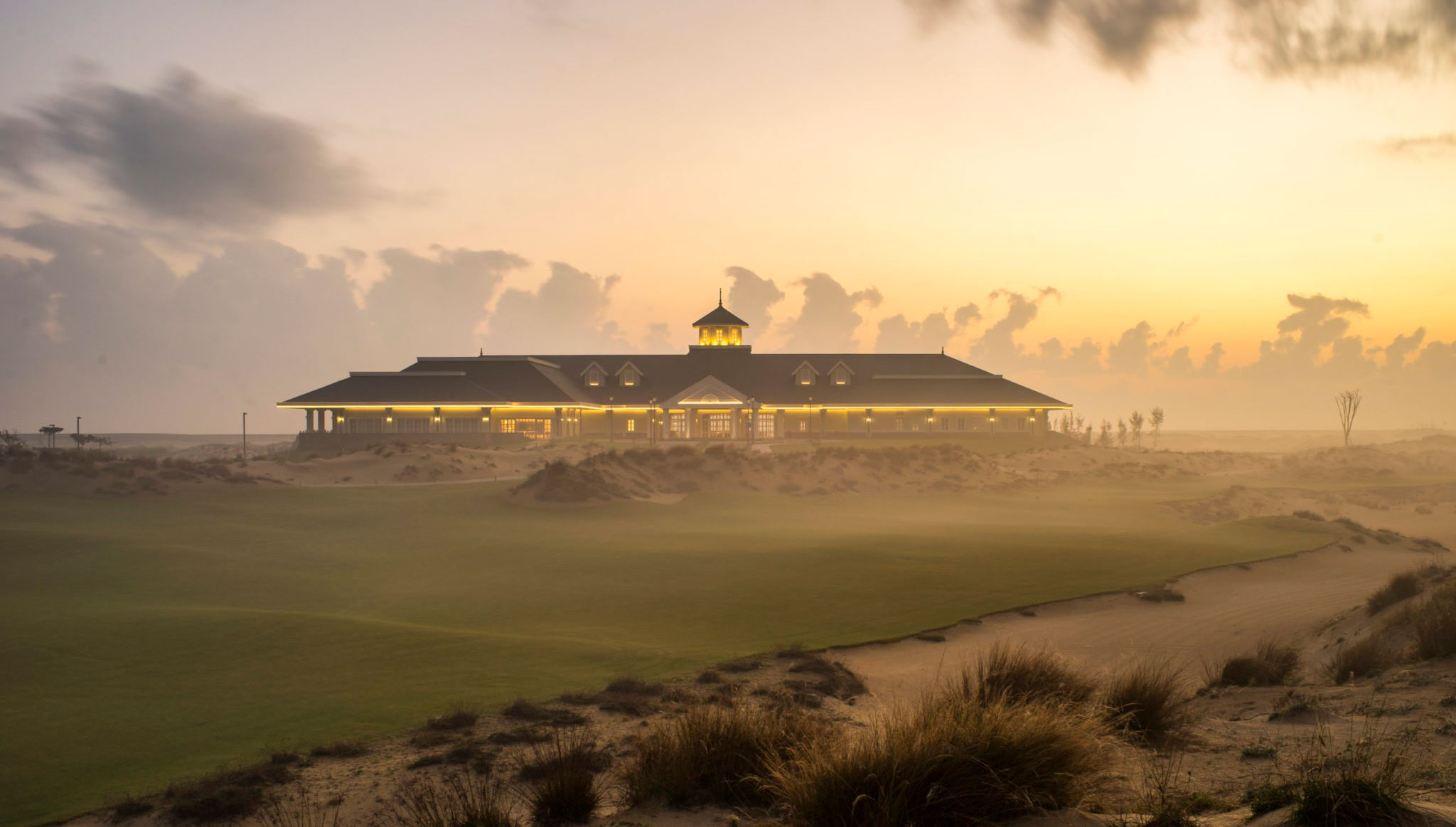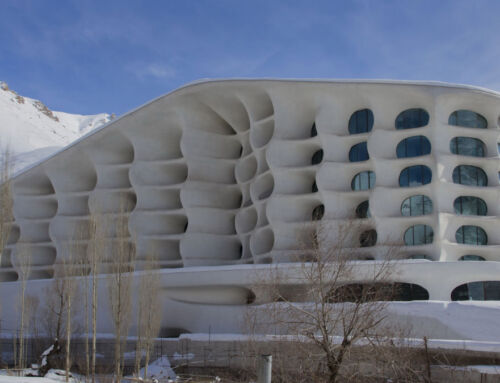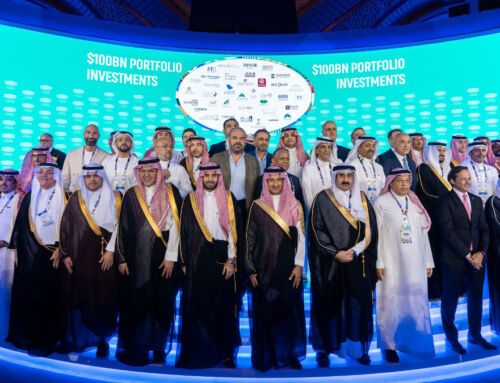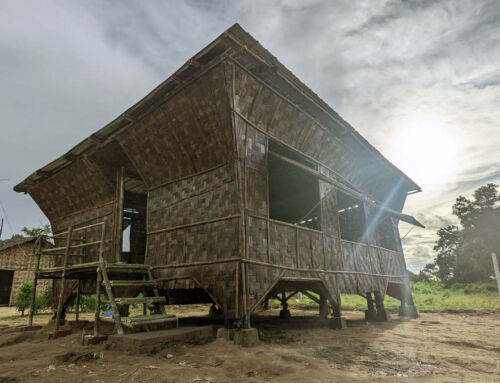We have the pleasure of introducing Chris Wootten, an expert in the Asian leisure and hospitality industry. After leaving an accountancy job, he embarked on cruise ships to manage the catering side of the business at the highest level. He then returned on land to manage private clubs in Malaysia, Indonesia & Macau, before finally setting up his own advisory and consultancy firm in Singapore. From there he has gone on to manage over 100 projects in 24 countries around Asia, the Middle East and Europe. You would be remiss not to appreciate the passion and enthusiasm he puts into everything he does, including this interview which you will certainly enjoy.
Amusement Logic: You studied accountancy and earned a Master Diploma in Travel and Tourism. However, you started your professional career in the Food & Beverage (F&B) industry. How was that and why did you choose the tourism sector?
Chris Wootten: Yes, quite a diverse and somewhat unusual path! I loved economics and statistics when studying, hence me deciding to begin my career in accountancy. However, after a few years of practicing in this field the desire for travel and the excitement of hotels, trains, cruise ships, etc. was drawing me (I grew up in the port city of Southampton from where the luxury trans-Atlantic liners departed).
These interests drove me to leave the desk environment and travel & tourism seemed a good path to follow. It was this desire to experience different peoples, cultures, cuisines and arts that got me into the hotel sector, in a food and beverage role. Some 40 years later I am pleased to say that each of these various experiences and skills learned has contributed to my present career and ability to see a business from various angles and allowed me to enjoy the work I do to its full potential.
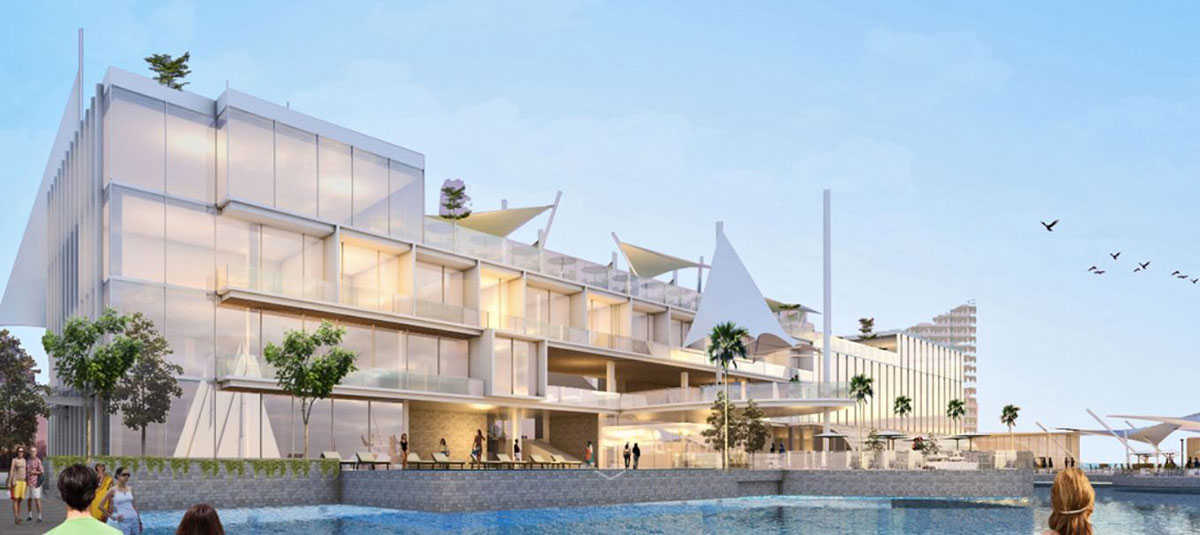
A.L.: You worked around 3 years running restaurant operations on luxury cruise lines. What was your job on the ships?
C.W.: I worked on various cruise liners, of varying scale and diverse character. We sailed the Caribbean, South America, Florida, through the Panama Canal, California, West Coast of Canada and Alaska. Exciting times indeed! My position was Restaurant Manager – responsible for some 100 staff serving 4 meals a day on two sittings. Some ships had 2 or more restaurants and lounges so you can imagine there was always some sort of meal service going on, somewhere. The service flow was a very well-oiled machine and timing & efficiency were key, combined with a lot of interaction and dialogue with the passengers.
I oversaw all aspects of passenger service for cruises that normally lasted 7 days. Day 1 which was embarkation day was the most fun: allocating seating, table arrangements and sitting preference to each passenger. Being on the wrong table at the wrong time of the day with a group of incompatible fellow guests can make for a long week and one of my key focusses was reading minds and creating lasting memories and friendships!
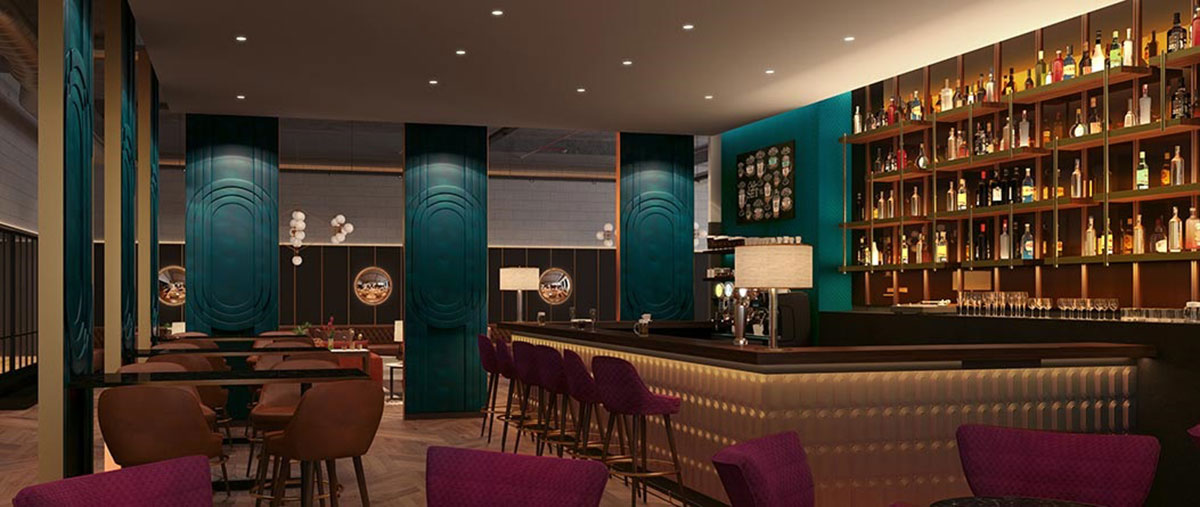
A.L.: After 2 years in Sun International, still working in F&B, you moved to CCA International, in the private club management sector. How did this progress occur and what did you do at that company?
C.W.: For many years I had yearned to work in Asia (having been to Amsterdam, North America, Bermuda, South Africa and Australia beforehand). The challenge was that in the 1980s employers would tell you that to be able to get a transfer to Asia you had to understand Asia. However, nobody was prepared to hire you in Asia without Asia experience so you had no chance to understand it!! I decided to take the bull by the horns and “did it my way!”
I booked a one-way flight ticket from Cape Town to Hong Kong and knocked on doors. Luckily somebody I was introduced to advised me that CCA International were hiring and liked British managers to run their private clubs. In spite of being interviewed over a dim sum lunch, using chopsticks for the first time (that had a mind of their own!) I was hired and on my way to Kuala Lumpur to take on the F&B position at The Bankers Club. I stayed with CCA for some 5 years and became General Manager, opening and managing 4 clubs in Indonesia as well as Macau during my spell with them.
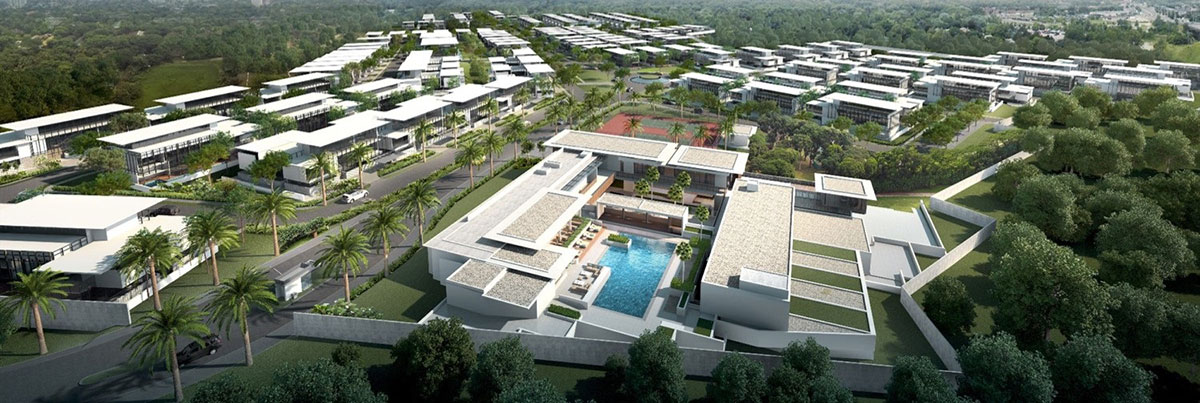
A.L.: You then developed your own consultancy business, firstly International Leisure Consultants followed by The Golf Group Asia and Asia Club Services. What are the profiles of these companies?
C.W.: I am the principal Director of the three companies, which are all based in Singapore and within the International Leisure Consultants (ILC) portfolio. With ILC we provide turnkey leisure consultancy and management services to owners, developers, master planners, designers and operators. These services can commence at the concept and feasibility stage and run through to management and operations; however, we also assist with technical services, management strategy, sales and marketing planning, pre-opening and/or turnaround stages, as a client requires.
The projects we work on range from mixed use master plans, residential developments, clubs and clubhouses, marinas and yacht clubs, waterfront villages, golf resorts and courses, water parks, theme parks and attractions, spas and wellness retreats, plus select boutique hotels and destination resorts.
The Golf Group is our specialist golf affiliate that provides a range of planning and operational services for stand-alone golf clubs and developments within which a golf course is planned.
Asia Club Services provides comprehensive and total strategic and operational management services for private and hybrid city clubs, country clubs, town clubs and city/athletic club properties.
A.L.: You specialized in the Asian market from the very beginning. As the world’s largest continent, what are the main differences within the Asian market?
C.W.: Asia is the world’s largest continent and houses its largest population. It is also, in my opinion, the most dynamic and exciting. Given its huge scale and diversity there is no “one size fits all” approach to doing business in the region.
Many people believe that they can take a concept or a business model that works in one part of Asia and replicate it in another part. We at ILC do not. We don’t “copy & paste”, we create to fit the market and, as a result, deliver concepts, experiences and solutions that are relevant, tailored and economically viable. Numerous unique elements, which vary from country to country/city to city, determine our approach and rationale —these range from climate, demographic character, population, culture, religion, cuisine, spend power, hobbies, pastimes, sports and pursuits, living style (home size and style, live/work/commute/play patterns), social interaction, approach to children and family, business etiquette and traditions, design and facility needs. The needs and preferences associated with these factors feed into our project briefs and operational planning.
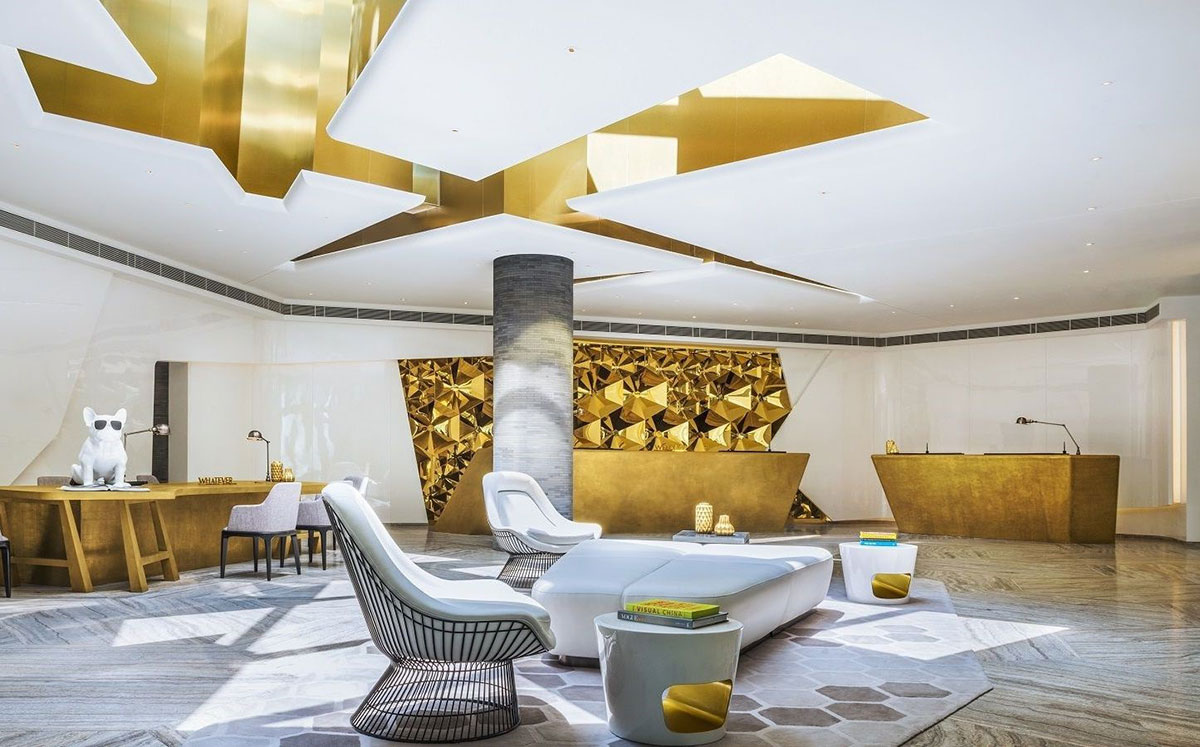
A.L.: What countries in Asia are the most promising for the leisure and hospitality business and why?
C.W.: All of Asia offers huge promise and strong demand for the leisure sector. To varying degrees. There are nations in Asia which boast truly world class facilities and services (many are indeed the best in the world) and in these markets the environment is extremely competitive and projects/facilities are constantly required to continually develop and improve in order to satisfy a demanding and discerning clientele. Customer, guest and member retention is a key focus. Other areas are developing and many of these economies have huge populations and a rapidly expanding middle class with ever increasing disposable income. The region as a whole caters to a significant domestic audience and visitor demographic —both regional as well as global. The successful projects we work on have invested in understanding and delivering to their primary market first and foremost whilst ensuring the opportunity to deliver to a qualified secondary market is optimized.
A.L.: What are the main challenges of the Asian leisure and hospitality markets?
C.W.: I see there being 3 key areas and believe that these apply on a world-wide level. Firstly, personnel and training. We are blessed in most parts of Asia to have a very “service oriented” culture and workforce. Hence the recognition that many properties in Asia have justly secured as being “best in class”. That said, the development and retention of qualified and motivated staff resources is of paramount importance and becoming more of a challenge on so many fronts. Staff recruitment, development and training is a focus, philosophy and culture we apply to all our projects, from feasibility & planning through to operations. This approach and priority will optimize staff retention and loyalty —of critical success to any good business.
Secondly, management. Good management resources who know and are constantly reminded what it means to truly manage are critical to the success of a business. At ILC we select carefully and monitor/support/develop continually. Management is more than simply wearing a different colour shirt, it is about understanding the business, providing a quality product, driving the business, maintaining the facility, developing the team and communicating with the customer and would be customer. Continual and constant focus on these aspects will generate the desired bottom line —the Key Performance Indicators on which all managers are judged.
Thirdly, unique features, services and facilities and creating a culture that constantly pushes this effort to the optimum. This sounds simple but can often be forgotten. It is not enough to just create something that is a replica of something else, we need to create a product that is exceptional, unique and in many ways better or more widely respected than its peers. We are in the business of entertainment, service culture and experience —it is critical that we offer every guest, member and employee something to remember and talk about. What makes us unique, why would I visit, why would I return, what and why would I tell my friends? And then we have to continually improve, not sit on our laurels and think the job is done!

A.L.: What projects would you highlight from this last part of your career and why?
C.W.: Since establishing ILC more than 25 years ago we have contributed to in excess of 100 projects in 24 countries and territories, 55 cities, plus in the Middle East and Europe. All have been unique and exciting to be a small part of, each worthy of highlighting in their own way and all contributing to the tremendous work place environment I have been lucky to enjoy.
Rather than focusing on specific projects I prefer to mention the incredible experiences and opportunities that my career has provided me, such as standing on a pristine uninhabited hill and envisaging a dramatic opening tee shot; walking along a beach of pure white sand and creating in the mind’s eye a sailing club full of enthusiastic children eager to get on the crystal clear water; sitting around a conference table with designers and consultant teams sketching out how a vast land parcel will be converted to become a living, thriving community and destination.
There is a specific thrill in conducting walk in interviews and seeing more than a thousand potential employees clutching their carefully drafted resumes in light card folders; welcoming the first guests to set foot inside a new property; meeting with the powers that be in a city to outline conceptual plans for a new and iconic club concept; seeing a brigade of chefs in spotless whites on their first day; welcoming a new team on orientation day. And being able to study a Profit & Loss statement that shows the property has exceeded budget, beaten all its peers in terms of performance, and confirms to shareholders that dividends will once again be paid —that’s what it’s all about!
A.L.: How do you start a project and what is the main roadmap for its success?
C.W.: We prefer to start a project at the beginning, during feasibility and concept development stage, as this allows us to contribute to the developer vision and define the experience that is to be created, before design and project teams start developing plans and references. This is not always the way things work however and in many instances we are introduced to a project when questions arise that teams on board do not have the answers to, when specialist advise and direction is called for, or when things have gone wrong and expertise is required to “refloat the ship”!
Regardless and whatever the stage of our introduction we will always take a view whereby we will look at the end product and develop a programme of activity and sequence of “deliverables” that prioritize the “output”. By this I mean envisioning the user profile (who will the customer be?), the experience they will enjoy, the volume of business that can be expected and sustained, the manner in which the business will be operated and the operating systems and processes that will be required. This approach can then feed into the design, positioning and conceptual briefs that the development team can then create and deliver. A facility or product that is designed and developed with the end user and investor in mind will be efficient to operate, a pleasure to visit and produce a return on investment. These are the key areas of focus we highlight at the earliest possible opportunity.
A.L.: How do you see the future of the leisure and hospitality industry?
C.W.: The future of leisure and hospitality is exciting and will continue to be buoyant and progressive for decades and centuries to come. Already the world’s largest employer, the pace of growth witnessed over the last 3 or 4 decades will undoubtedly continue and more and more of us will be directly or indirectly involved in its success, either as a creator, developer, employee, beneficiary, supplier or end user.
Certainly, in Asia the number of people who can now locate, afford and enjoy vacations, city breaks, “staycations”, sports, dining, entertainment, tuition and development, social experiences, recreation, thrills and excitement, sports, fitness, health and wellness are escalating more rapidly than ever before as products are becoming more commonplace and accessible.
I believe that not all new growth will be successful however and can already see alarm bells ringing within the sector in many countries. Quality will prevail and the strong will survive. Some lesser products and operators who lose focus or drop standards will fall by the wayside as supply exceeds demand and the customer can truly vote with their feet. As I mentioned earlier, solid planning, sensible economics, service, qualified, enthusiastic personnel, strong management vision and clear “points of difference” will be key differentials.
Create the memorable experience. Deliver more than your promise. Plan well. Get the right expert support. Focus on the end game. Enjoy what you do and remember the customer has a choice. We at ILC look forward to being a big part of that for many years to come.


